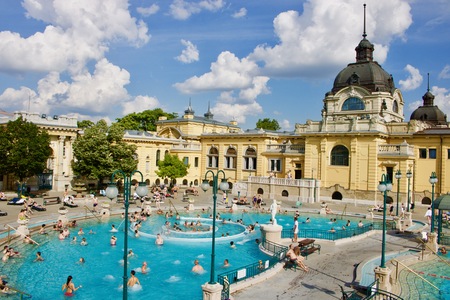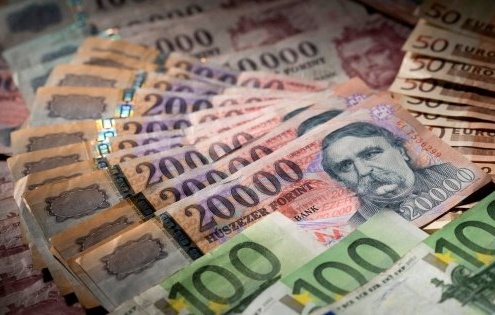A Traveler’s Guide for Prices in Budapest in 2024
Budapest, long cherished for its affordability, has experienced notable price increases in recent years, influenced by some of the highest inflation rates in the Northern Hemisphere. While the city remains more budget-friendly than many major European capitals—and considerably less expensive than most U.S. cities—it’s no longer the hidden bargain it once was. That said, with a bit of planning and smart choices, you can still enjoy Budapest without overspending. Here’s what you need to know about prices in Budapest in 2024 for accommodation, food, transportation, and activities.
Accommodation Prices in Budapest
Budapest caters to all budgets with a wide range of options:
- Budget hotels: Starting at €60–€120 per night for two adults.
- Mid-range hotels: Around €120–€250 per night.
- Luxury stays: €250+ per night, including spa hotels and riverfront views.
- Airbnbs: €70
Prices depend on the location, season, and amenities. Whether you’re looking for a boutique stay or a luxury experience, Budapest offers something for every type of traveler.

Food and Drinks Prices in Budapest
Hungarian cuisine is a treat for both the palate and the wallet:
- Street food (e.g., lángos): ~€8-10
- Daily lunch menus (Napi menü): ~€8-10 (offered weekdays in many restaurants).
- Fine dining: From €80+ per person.
- Coffee: ~€3
- Pint of beer: ~€5
Supermarket Prices (approx.):
- Milk (1L): ~€1
- Loaf of fresh white bread: ~€3
- Eggs (per egg): ~€0.30
- Beer (bottle): ~€1.50
- Cigarettes (pack): ~€4.50
- Big Mac Meal (McDonald’s): ~€8
- Water (1.5L): ~€0.50
Whether you’re indulging in fine dining or picking up groceries for a budget-friendly meal, Budapest offers a variety of options to suit your taste and budget. If you want to dive deeper into the culinary life of the city, check out our friend’s culinary tour.

sightseeing public tram in Budapest – Budapest on a budget
Transportation Prices in Budapest
Budapest’s public transportation system, operated by BKK (Budapest Közlekedési Központ, or Budapest Transport Center), makes getting around the city convenient and affordable. The network includes metro, trams, buses, trolleybuses, ferries, and suburban railway trains (HÉV). However, note that the Castle Funicular operates separately and requires a different ticket.
Public Transport Options:
- Single ticket: ~€1.20
- 24-hour travel pass: ~€6.50
- 72-hour travel pass: ~€14
- 24-hour group travel pass (for up to 5 people): ~€14
Airport Transfers:
- Taxi: ~€30
- Airport bus (Bus 100E): ~€5.50
Other Transport Options:
- Cruiser bike rental (Zedbike): ~€24 per day
- E-bike rental (Zedbike): ~€45 per day
- Stroller rental (Zedbike): ~€22 per day
- Castle Funicular return ticket: ~€13
With its extensive network and budget-friendly fares, Budapest’s transport system is an excellent way to explore the city!

Prices of Activities and Attractions in Budapest
Budapest offers a mix of historical landmarks, cultural experiences, and relaxing thermal baths to suit every traveler. Here’s a breakdown of typical costs for popular activities in 2024:
Thermal Baths
Relaxing in Budapest’s famous thermal baths is a must:
- Széchenyi Bath: From ~€27
- Gellért Bath: From ~€27
- Lukács Bath: From ~€12
- Rudas Turkish Bath: From ~€24
Iconic Landmarks
- St. Stephen’s Basilica: €6–€18 (depending on access areas)
- Matthias Church: ~€6.50
- Fisherman’s Bastion: ~€3 (Free from 9 PM–7 AM)
- Hungarian Parliament (45-minute guided tour):
- EU Citizens: ~€16
- EU Students: ~€8
- Non-EU Citizens: ~€31.50
- Non-EU Students: ~€16 (Reserve tickets online)
Museums and Cultural Sites
- Dohány Street Grand Synagogue (with tour): ~€28
- Hungarian National Museum (history): ~€9.50
- Hungarian National Gallery (fine art): ~€11
- House of Terror (Nazi and Communist history): ~€11
- Hospital in the Rock (hospital and bunker): ~€20.50 (includes a tour)
- Holocaust Memorial Center: ~€10
- Memento Park (Socialist-Realist statues): ~€8
- Ludwig Museum of Contemporary Art: ~€12
- Museum of Fine Arts (international art): ~€13
Other Activities
- Danube River Cruises: Starting at ~€15 (Legenda)
- Public Toilets: ~€1
Budapest’s blend of history, art, and relaxation means there’s something for everyone, whether you’re exploring castles, enjoying a spa day, or delving into the city’s rich cultural history.

hungarian money – forint
Tips to Save Money in Budapest
Budapest offers incredible experiences for travelers on any budget. Here are some practical tips to help you save money during your visit:
Transportation
- Use public transport: Skip taxis and make the most of Budapest’s efficient public transportation system, including metro, buses, and trams.
- Buy travel passes:
- 24-hour Budapest Travelcard: Great for unlimited travel within the city.
- 24-hour Group Budapest Travelcard: Perfect for groups of up to 5 people traveling together. (Note: This is different from the Budapest Card.)
- Try MOL Bubi bikes: Enjoy the first 30 minutes free after a small registration fee (~€2).
- Walk when you can: Many top attractions, like Buda Castle and the Chain Bridge, are within easy walking distance. Join our daily free tours: Get personalized recommendations and discover hidden gems in Budapest!
Accommodation
- Stay outside the city center: Districts VIII; XI and XIII are budget-friendly and still well-connected to the city by public transport.
Food and Dining
- Try local markets: Affordable and authentic meals can be found at markets like Rákóczi Market or Hunyadi Market.
- Eat the lunch specials: Many restaurants offer “daily menus” (napi menü) with 2–3 courses for just €8-10
- Avoid tourist traps: Restaurants near landmarks often have inflated prices. Explore less touristy neighborhoods for hidden gems.
- Plan ahead for Christmas markets: Food and drinks are pricey at Christmas markets—don’t arrive on an empty stomach.
General Tips
- Use local currency (HUF): Due to better exchange rates, paying in Hungarian forints is usually cheaper than euros.
- Avoid touristy currency exchanges: Use ATMs or city center exchange offices with competitive rates.
- Drink tap water: Budapest’s tap water is safe and free—carry a reusable water bottle.
For more useful tips from locals about the prices in Budapest or how to explore the city, join our daily free Budapest walking tours. We are led by professional local tour guides born and raised in Budapest, we offer fresh, up-to-date insights beyond what any guidebook can provide. Let us show you the best of Budapest!


